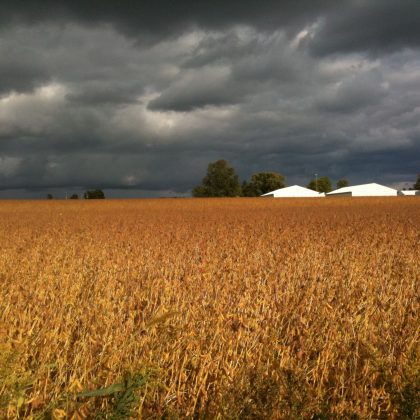Investigating Agroecology and Animal Production Systems
Three articles have been selected as the animal Article of the Month for August. All three articles are taken from a special issue on Agroecology published in animal. The first is entitled ‘Editorial: Agroecology for producing goods and services in sustainable animal farming systems’
The recent surge in academic literature on agroecology has ignored animal production systems despite their direct or indirect dependency on natural processes. Animal production systems have indisputable negative impacts on the environment, but the problem lies not so much with the animals themselves or their use as food, but with the ways animals are incorporated in agroecosystems and food systems. Animal agriculture needs to be reconfigured to minimize its negative impacts, produce food and other ecosystem services and increase their adaptive capacity to face an increasingly uncertain future (markets, climate change, demands for food security, shifts in dietary preferences in the developing world). The integration of animals in an agroecosystem can often make the difference in realizing long-term ecological sustainability and socio-economic viability goals.
In a special issue of animal, 19 papers investigate how agroecology principles can contribute to the design of innovative, adaptive and resilient farming systems in ruminants, pigs, horses and aquaculture across temperate, Mediterranean and tropical areas. The papers cover a wide range of topics, among which the constraints to production increases from the farm and the farmers’ perspective in tropical smallholder systems, and the importance of understanding farmers’ attitudes for making innovations socially acceptable.
The integration of cropping and livestock farming systems allows better regulation of biochemical cycles and environmental fluxes through interactions among farm units. In Brazil, rotational grazing, incorporation of legumes to pastures and integrated crop-livestock-forestry systems enable higher economic outcomes to be obtained while reducing deforestation and forest degradation. Animal diversity also matters; for instance mixed-grazing with cattle and goats increases management adaptability of rangeland-based systems. In tropical grasslands, combining goats with heifers also increases overall animal production and represents an option for the lower use of chemical anthelmintics. Management options to reduce concentrate feed are then discussed in horse and pig production systems. An integrated, self-contained, fish-plankton system can provide technical, environmental and economic advantages for fish aquaculture in Amazonia compared with the traditional outdoor production. It is then presented an evaluation framework to measure the level of system compliance with agroecology principles; in addition Life Cycle Assessment allows quantifying the overall environmental impact of feed production systems. Finally, we discuss the application of the ecosystem services framework for integrating market and non-market functions, which allows considering trade-offs and synergies that exist in livestock farming systems.
We conclude this special issue on the identification of key research areas on the technical and organizational innovations that are needed to scale-up the use of agroecology principles in animal production systems. Designing robust and resilient systems able to face increasing uncertainty and handle various types of disturbances will demand a paradigm shift in many scientific disciplines. We should quickly progress towards holistic and interdisciplinary research methods, involving animal scientists, ecologists, economists and sociologists. We also call for a new approach for the whole research-development-innovation chain to bridge the gap between science and practice.
Access the full Editorial here
Authors: B. Dumont and A. Bernués
The animal Article of the Month is selected by the Editor-in-Chief and is freely available for one month






